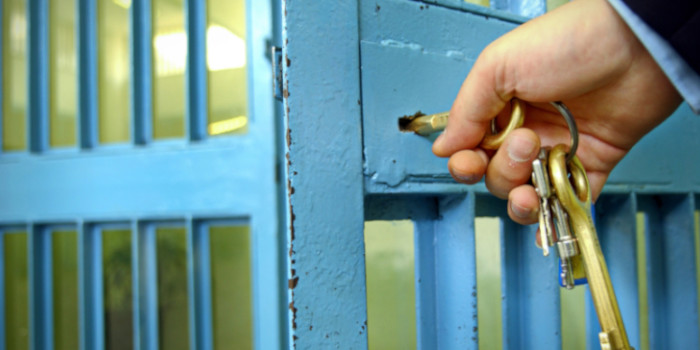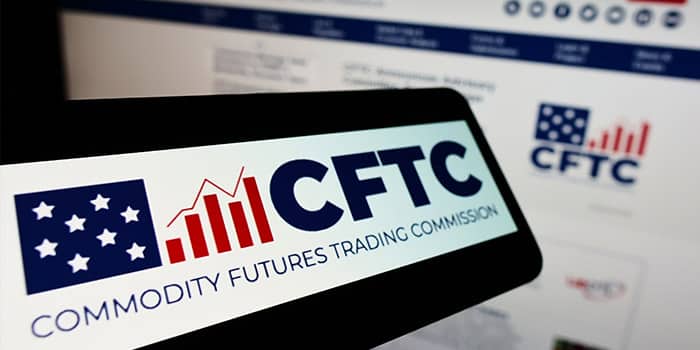- Casino
- By State
- Alabama
- Alaska
- Arizona
- Arkansas
- California
- Colorado
- Connecticut
- Delaware
- Georgia
- Florida
- Hawaii
- Idaho
- Illinois
- Indiana
- Iowa
- Kansas
- Kentucky
- Louisiana
- Maine
- Massachusetts
- Maryland
- Michigan
- Minnesota
- Mississippi
- Missouri
- Montana
- Nebraska
- Nevada
- New Hampshire
- New Jersey
- New Mexico
- New York
- North Carolina
- North Dakota
- Ohio
- Oklahoma
- Oregon
- Pennsylvania
- Rhode Island
- South Carolina
- South Dakota
- Tennessee
- Texas
- Utah
- Vermont
- Virginia
- Washington
- West Virginia
- Wisconsin
- Wyoming
- By State
- Slots
- Poker
- Sports
- Esports
Illinois Sweepstakes Business Manager Goes to Prison for Bribery
James T. Weiss was sentenced to 5.5 years in prison for his involvement in a bribery scheme that sought support from lawmakers for the legalization of sweepstakes machines

A sweepstakes gaming company manager in Chicago was sentenced to five and a half years in prison over his participation in an elaborate bribery scheme that involved a couple of Illinois lawmakers. The latest announcement was confirmed by the US Attorney’s Office, Northern District of Illinois on Thursday.
James T. Weiss, the manager of a gaming company called College LLC, was sentenced to five and a half years in prison for his role in the bribery scheme that involved Luis Arroyo, a former Illinois State Representative and Terry Link, then-Illinois State Senator. Back in June, a federal jury convicted Weiss on false statement charges, as well as fraud. After a hearing in Chicago federal court earlier this week, his sentence was imposed by US District Judge Steven C. Seeger.
With the bribery scheme, Weiss sought to expand its business that involved sweepstakes machines. Bribing Arroyo, the manager of the sweepstakes gaming company wanted his support in the legalization of sweepstakes machines. Currently, sweepstakes machines are not regulated in Illinois but can operate considering that there is no legislation that prohibits their use.
Overall, Arroyo was an Illinois House Representative from 2006 through 2019. Back in 2022, he pleaded guilty to his role in the aforementioned bribery scheme. Consequently, Arroyo was sentenced to nearly five years in prison for his involvement in the crime.
Bribery Scheme Sought Sweepstakes Legalization
The bribery scheme dates back to 2018 and 2019. At the time, Weiss paid thousands of dollars to Arroyo who was a State Representative back then. According to the US Attorney’s Office, bribes were made from Weiss’ gaming company to Arroyo’s private lobbying firm in Chicago, Spartacus 3 LLC.
The bribes were in the form of checks that were payable to Arroyo’s company in exchange for his support for the legalization of sweepstakes machines. Accepting the bribes, the State Representative agreed to promote such legislation in the Illinois General Assembly and push forward the sweepstakes machines legalization.
The bribery scheme expanded in August 2019 when Arroyo suggested making bribe payments to the then-Illinois State Senator, Link, in exchange for his support for the sweepstakes legislation. According to court documents, Weiss wanted to conceal those payments so that they could appear “as if they were for legitimate consulting work.” In an effort to conceal the bribery payments, Weiss made two checks totaling $5,000 to a fictitious third party and had them delivered to the Senator.
Jerome brings a wealth of journalistic experience within the iGaming sector. His interest in the industry began after graduating from college, where he regularly participated in local poker tournaments. This exposure led him to the growing popularity of online poker and casino rooms. Jerome now channels all the knowledge he's accrued to fuel his passion for journalism, providing our team with the latest scoops online.
Must Read
More Articles




Casino
April 18, 2025
Florida HB Seeking to Upgrade Illegal Gambling Punishments

Legal
April 17, 2025
Appeal to Keep Evolution’s Accuser Anonymous Denied

Lottery
April 17, 2025
CTLC Says Its Members Didn’t Violate the Texas Law














